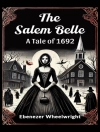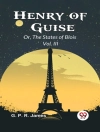In her novel ‘Folle-Farine, ‘ Ouida delivers a rich tapestry of emotions woven through the intricate lives of her characters, set against a backdrop of societal constraints and personal aspirations in 19th-century Europe. The narrative style is characterized by lush prose, vivid descriptions, and an exploration of themes such as love, identity, and the struggle for independence. This psychological drama unfolds through the perspective of a spirited protagonist who challenges the norms of her time, deftly reflecting the complexities of the human experience and the ramifications of societal expectations on individual agency. Ouida, born Maria Louise Rame in 1839, was a prominent Victorian novelist known for her engaging storytelling and strong female characters. Her experiences in elite circles, coupled with her observations of the stark realities faced by women and the underprivileged, profoundly influenced her writing. ‘Folle-Farine’ is often viewed both as a critique of social conventions and a celebration of the resilience of the human spirit, mirroring Ouida’s own life as a figure who often defied societal restrictions. Readers interested in literature that intersectionally examines class, gender, and personal identity will find ‘Folle-Farine’ an illuminating read. With its evocative prose and compelling narrative, Ouida’s work remains a powerful reminder of the struggles for self-determination and the richly textured realities of 19th-century life.
Tentang Penulis
Ouida, the pen name of Maria Louise Ramé, was a prolific English novelist known for her opulent romantic novels and children’s stories during the latter half of the 19th century. Born on January 1, 1839, in Bury St. Edmunds, England, Ouida was reputed for her flamboyant lifestyle as much as her writing. She developed an unmistakable literary style characterized by melodramatic narratives and a compassionate outlook towards social issues including women’s rights and animal welfare. Her work ‘Folle-Farine’ illustrates her narrative style, which engages with themes of passion, beauty, and the less privileged. With over 40 novels to her credit, Ouida’s lavish tales often reflected her own indulgent life, yet they offered a critical look at the disparities of Victorian society. Despite falling into relative obscurity in modern times, Ouida’s tales provided commentary on the aspirations and follies of the era, making her an important, if not entirely mainstream, figure within 19th-century English literature. Her work has been both critiqued for sentimental excess and praised for its daring social observation. But it is in the rich storytelling and timeless scrutiny of social norms that her literary legacy endures.












